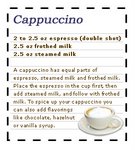With its blood-red walls and black leather sofas, Kirkland's Terra Bite Lounge looks like any other coffee shop — until you get to the menu. There are no prices listed. Terra Bite doesn't have them.
You read that right: No prices. Customers pay what and when they like, or not at all — it makes no difference to the cafe employees, who are instructed not to peek when people put money in the metal lock box.
"Does it really matter to any of our patrons ... whether they pay a dollar or three dollars or five dollars?" said Terra Bite founder Ervin Peretz, a 37-year-old Google programmer.
He doesn't think so, at least not in the comfortable lakeside enclave that is downtown Kirkland.
Through his "voluntary payment" cafe, Peretz is poised to become the Robin Hood of the Starbucks set. Using an efficient, low-overhead business model and narrow profit margin, he figures he can finesse the largesse of well-off latte lovers to cover the tabs of the less fortunate.
The idea emerged during a booze-fueled debate in a Saigon bar, where Peretz and a colleague had traveled to blow off steam after a period of long hours at work.
Peretz argued that people are essentially good, but can be influenced by their environment. If people see good, they'll be good.
In November, he set out to prove his point, leasing a $4,000-a-month retail space in a new mixed-used building at Kirkland Avenue and State Street, dropping "in the low six figures" on startup costs and hiring his girlfriend, Susie Allsup, to manage the place, along with one part-time employee.
The name Terra Bite (www.terrabite.org) is a play on the tech term "terabyte," a trillion bytes, as well as a reference to earth and food.
More than coffee, sandwiches or even convenience, Peretz is selling good karma.
"People want something different. They want simplicity" of payment, he said. "They want to be taken to a new place, and they want to contribute to something."
Just how much they want to contribute is another matter.
While charities like the Boomtown Cafe in downtown Seattle charge $2 for Saturday brunch or let people exchange work for meals, Terra Bite is a for-profit business, and Peretz refuses to suggest prices. Each day he records how much was sold and how much was paid.
So far, Terra Bite has served up to 80 customers per day, averaging about $3 per transaction, he said. When the shop brings in a steady flow of 100 customers a day, Peretz figures, he will more than break even.
But will new customers pay, let alone pay it forward?
Even without posted prices, "social monitoring" — the feeling that others are watching what you do — can enforce payment, said Erica Okada, assistant professor of marketing at the University of Washington Business School.
With its anonymous drop box, Terra Bite has minimized, if not eliminated, that effect. Under these circumstances, Okada said, the economic model predicts that Terra Bite customers won't pay anything.
But they do.
On a recent Thursday afternoon, Tonja Maciolek told the barista to charge $4 to her bank card for her bagel with cream cheese and coffee. She said she's a patron because she's sensitive to price and would prefer to name her own, even if it ended up being the same.
Kate Lewis, a 17-year-old high-school student who often hangs out and studies with friends at the cafe, said she would actually pay more than the going rate for her double-tall latte because she admires what the business is doing.
"It's kind of like a social experiment," she said.
Lewis is skeptical voluntary payment would work in larger, more anonymous places like Seattle, but in Kirkland "there's a social standard."
Unwritten as it is, the standard helps Terra Bite extract a psychic price.
Chris Allar, who lives nearby, said every transaction at the cafe forces him to do some mental math, and a little soul-searching.
"It's always hard to see if you paid too much or too little," he said.
Allar put in $3 for his 12-ounce chai tea latte. The anxiety, "a feeling of did I really pay enough," was free.
Peretz admits that Terra Bite treads on shaky ground. He's got to attract enough paying customers to cover the cost of those who pay less or not at all.
Peretz isn't worried that people will abuse Terra Bite. There's enough money to fund the honor system, and enough honor, too, he said.
What does bother him is the prospect that customers might become cynical and think Terra Bite is just a gimmick, and that he's insincere.
All he's really trying to do, he says, is skim the froth off the high-end economy and spread it around a little.
Besides, he added: "If it turned out that 20 percent of the population were dishonest, we could just put in a cash register.
Subscribe to:
Post Comments (Atom)











1 comment:
Very interesting post. I wish I could try the place out. You really should credit the Seattle Times somewhere in your post though.
Post a Comment